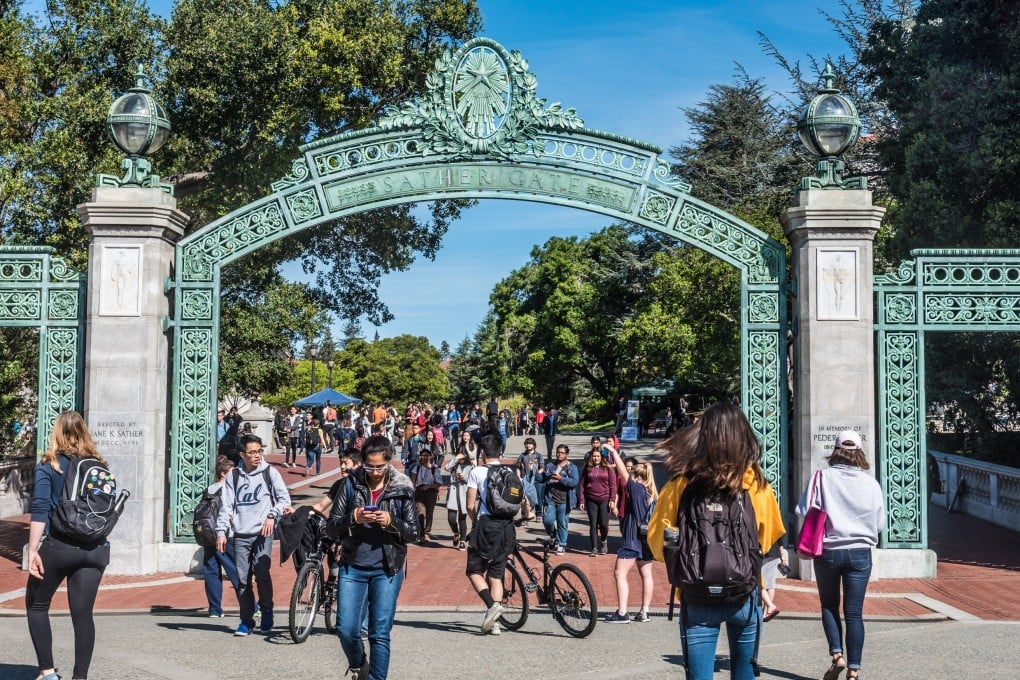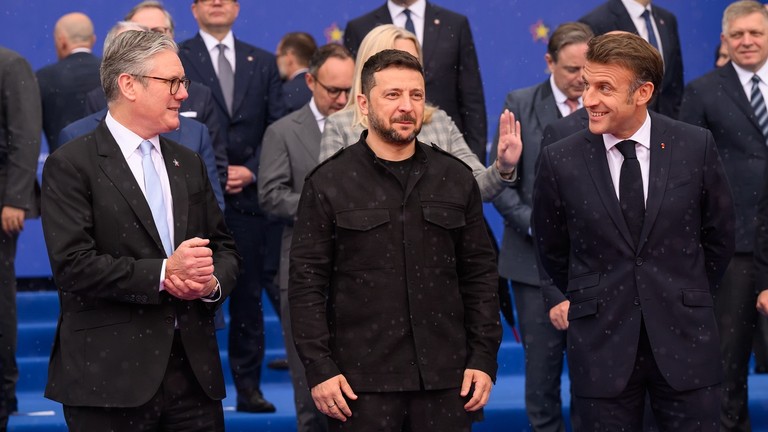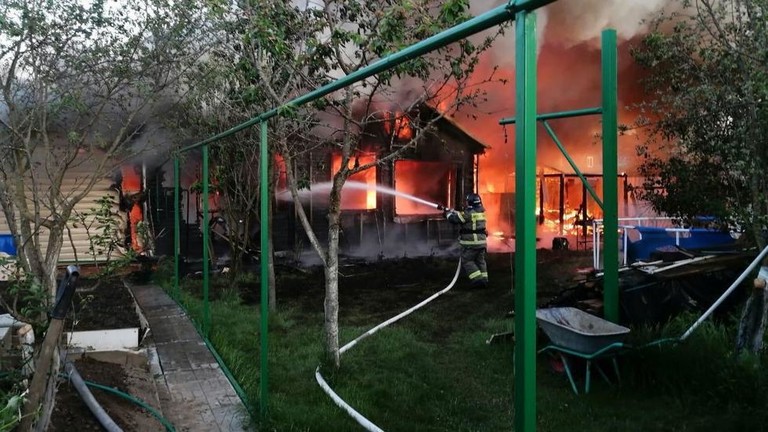Elite Western universities are a corrupt, parasitic empire
©Getty Images/Rattankun Thongbun

|
Dr. Mathew Maavak researches systems science, global risks, geopolitics, strategic foresight, governance and Artificial Intelligence. Follow him on X @MathewMaavak or read his latest articles at drmathewmaavak.substack.com
|
In a move that has ignited a global uproar, US President Donald Trump banned international students from Harvard University, citing “national security” and ideological infiltration. The decision, which has been widely condemned by academics and foreign governments alike, apparently threatens to undermine America’s “intellectual leadership and soft power.” At stake is not just Harvard’s global appeal, but the very premise of open academic exchange that has long defined elite higher education in the US.
But exactly how ‘open’ is Harvard’s admissions process? Every year, highly qualified students – many with top-tier SAT or GMAT test scores – are rejected, often with little explanation. Critics argue that behind the prestigious Ivy League brand lies an opaque system shaped by legacy preferences, DEI imperatives, geopolitical interests, and outright bribes. George Soros, for instance, once pledged $1 billion to open up elite university admissions to drones who would read from his Open Society script.
China’s swift condemnation of Trump’s policy added a layer of geopolitical irony to the debate. Why would Beijing feign concern for “America’s international standing” amid a bitter trade war? The international standing of US universities has long been tarnished by a woke psychosis which spread like cancer to all branches of the government.
So, what was behind China’s latest gripe? The answer may lie in the unspoken rules of soft power: Ivy League campuses are battlegrounds for influence. The US deep state has long recruited foreign students to promote its interests abroad – subsidized by American taxpayers no less. China is apparently playing the same game, leveraging elite US universities to co-opt future leaders on its side of the geostrategic fence.
For the time being, a judge has granted Harvard’s request for a temporary restraining order against Trump’s proposed ban. Come what may, there is one commonsense solution that all parties to this saga would like to avoid: Forcing Ivy League institutions to open their admissions process to public scrutiny. The same institutions that champion open borders, open societies, and open everything will, however, not tolerate any suggestion of greater openness to its admissions process. That would open up a Pandora’s Box of global corruption that is systemically ruining nations today.
Speaking of corruption – how is this for irony? A star Harvard professor who built her career researching decision-making and dishonesty was just fired and stripped of tenure for fabricating her own data!
Concentration of wealth and alumni networks
The Ivy League has a vested interest in perpetuating rising wealth and educational inequalities. It is the only way they can remain atop the global rankings list at the expense of less-endowed peers.
Elite universities like Harvard, Stanford, and MIT dominate lists of institutions with the most ultra-wealthy alumni (net worth over $30mn). For example, Harvard alone has 18,000 ultra-high-net-worth (UHNW) alumni, representing 4% of the global UHNW population.
These alumni networks provide major donations, corporate partnerships, and exclusive opportunities, reinforcing institutional wealth. If the alma mater’s admissions process was rigged in their favor, they have no choice but to cough it up, at least for the sake of their offspring who will perpetuate this exclusivist cycle.
The total endowment of Princeton University – $34.1 billion in 2024 – translated to $3.71 million per student, enabling generous financial aid and state-of-the-art facilities. Less prestigious institutions just cannot compete on this scale.
Rankings, graft, and ominous trends
Global university rankings (QS, THE, etc.) heavily favor institutions with large endowments, high spending per student, and wealthy student bodies. For example, 70% of the top 50 US News & World Report Best Colleges overlap with universities boasting the largest endowments and the highest percentage of students from the top 1% of wealthy families.
According to the Social Mobility Index (SMI), climbing rankings requires tens of millions in annual spending, driving tuition hikes and exacerbating inequality. Lower-ranked schools which prioritize affordability and access are often overshadowed in traditional rankings, which reward wealth over social impact. Besides, social mobility these days is predetermined at birth, as the global wealth divide becomes unbridgeable.
Worse, the global ranking system itself thrives on graft, with institutions gaming audits, inflating data, and even bribing reviewers. Take the case of a Southeast Asian diploma mill where some of its initial batch of female students had been arrested for prostitution. Despite its flagrant lack of academic integrity, it grew rapidly to secure an unusually high QS global ranking – ahead of venerable institutions like the University of Pavia, where Leonardo da Vinci studied, and which boasts three Nobel Laureates among its ranks.
Does this grotesque inversion of merit make any sense?
Government policies increasingly favor elite institutions. Recent White House tax cuts and deregulation may further widen gaps by benefiting corporate-aligned universities while reducing public funding for others. This move was generally welcomed by the Ivy League until Trump took on Harvard.
With such ominous trends on the horizon, brace yourselves for an implosion of the global education sector by 2030 – a reckoning mirroring the 2008 financial crisis, but with far graver consequences. And touching on the 2008 crisis, didn’t someone remark that “behind every financial disaster, there’s a Harvard economist?”
Nobody seems to be learning from previous contretemps. In fact, I dare say that ‘learning’ is merely a coincidental output of the Ivy League brand.
The credentialism trap
When Lehman Brothers and its lesser peers collapsed in 2008, many Singapore-based corporations eagerly scooped up their laid-off executives. The logic? Fail upward.
If these whizz kids were truly talented, why did they miss the glaring warning signs during the lead up to the greatest economic meltdown since the Great Depression? The answer lies in the cult of credentialism and an entrenched patronage system. Ivy League MBAs and Rolodexes of central banker contacts are all that matters. The consequences are simply disastrous: A runaway global talent shortage will hit $8.452 trillion in unrealized annual revenues by 2030, more than the projected GDP of India for the same year.
Ivy League MBAs often justify their relevance by overcomplicating simple objectives into tedious bureaucratic grinds – all in the name of efficiency, smart systems, and ever-evolving ‘best practices’. The result? Doctors now spend more time on paperwork than treating patients, while teachers are buried under layers of administrative work.
Ultimately, Ivy League technocrats often function as a vast bureaucratic parasite, siphoning public and private wealth into elite hands. What kind of universal socioeconomic model are these institutions bequeathing to the world? I can only think of one historical analogue as a future cue: Colonial India, aka the British Raj. This may be a stretch, but bear with me.
Lessons from the Raj
As Norman Davies pointed out, the Austro-Hungarians had more bureaucrats managing Prague than the British needed to run all of colonial India – a subcontinent that included modern-day Pakistan and Bangladesh. In fact, it took only 1,500-odd white Indian Civil Service (ICS) officials to govern colonial India until WWI.
That is quite staggering to comprehend, unless one grasps how the British and Indian societies are organized along rigid class (and caste) lines. When two corrupt feudal systems mate, their offspring becomes a blueprint for dystopia.
India never recovered from this neo-feudal arrangement. If the reader thinks I am exaggerating, let’s compare the conditions in the British Raj and China from 1850 to 1976 (when the Cultural Revolution officially ended). During this period, China endured numerous societal setbacks – including rebellions, famines, epidemics, lawlessness, and a world war – which collectively resulted in the deaths of nearly 150 million Chinese. The Taiping Rebellion alone – the most destructive civil war in history – resulted in 20 to 30 million dead, representing 5-10% of China’s population at the time.
A broad comparison with India during the same period reveals a death toll of 50-70 million, mainly from epidemics and famines. Furthermore, unlike colonial India, many parts of China also lacked central governance.
Indian nationalists are quick to blame a variety of bogeymen for their society’s lingering failings. Nevertheless, they should ask themselves why US Big Tech-owned news platforms, led by upper-caste Hindu CEOs, no less, showed a decidedly pro-Islamabad bias during the recent Indo-Pakistani military standoff. Maybe, these CEOs are supine apparatchiks, much like their predecessors during the British Raj? Have they been good stewards of the public domain (i.e. internet)? Have they promoted meritocracy in foreign lands? (You can read some stark examples here, here and here).
These Indian Big Tech bros, however, showed a lot of vigor and initiative during the Covid-19 pandemic, forcing their employees to take the vaccine or face the pink slip. They led the charge behind the Global Task Force on Pandemic Response, which included an “unprecedented corporate sector initiative to help India successfully fight COVID-19.” Just check out the credentials of the ‘experts’ involved here. Shouldn’t this task be left to accomplished Indian virologists and medical experts?
A tiny few, in the service of a hegemon, can control the fate of billions. India’s income inequality is now worse than it was under British rule.
A way out?
As global university inequalities widen further, it is perhaps time to rethink novel approaches to level the education field as many brick and mortar institutions may simply fold during the volatile 2025-30 period.
I am optimistic that the use of AI in education will be a great equalizer, but I also fear that Big Tech will force governments into using its proprietary EdTech solutions that are already showing signs of runaway AI hallucinations – simply because the bold new world is all about control and power, not empowerment. Much like the British Raj, I would say.







